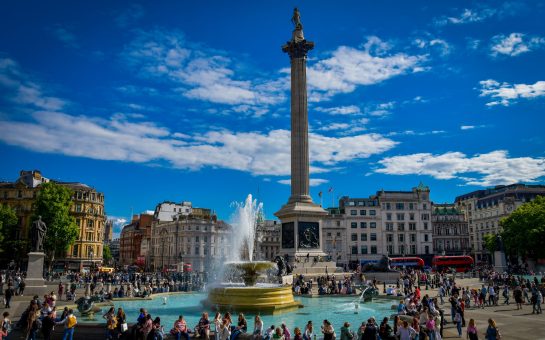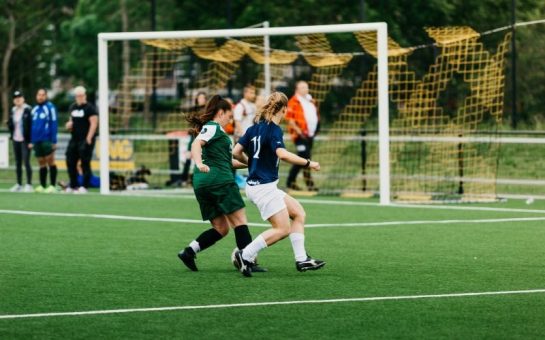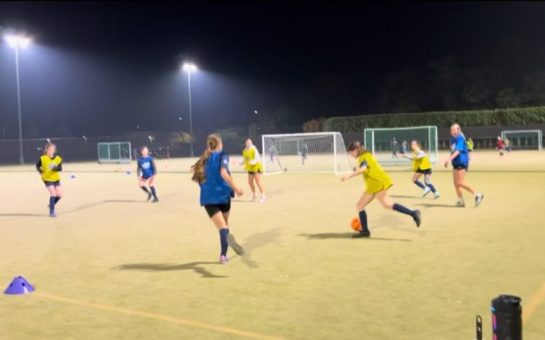At around 4:15pm local time on Thursday June 14 2018 at the Luzhniki Stadium in Moscow, the opening ceremony for the 21st FIFA World Cup will begin.
These affairs, ceremonial in every sense of the word, are a chance to celebrate all that is wonderful in a host nation.
The centrepiece of the 2014 ceremony in Sao Paulo – a ‘living ball’ – was a nod to the attachment Brazil has to the game, but also the Amazonian country’s inherent connection with the natural world, whilst the previous hosts South Africa played heavily on their continent’s claim to the cradle of humanity.
In Russia however, the ceremony’s organisers will likely want to skate over much of what the country has been going through both on and off the field in recent months and years.
The country’s Olympic Association is currently mired in a state-sponsored doping scandal.
The World Anti-Doping Agency-commissioned McLaren report, published last year, found 643 examples of athletes testing positive for banned substances across 30 Olympics disciplines – including 11 in football.
The International Olympic Committee will meet on December 5 to decide whether to allow the Russian Olympic Committee to compete at February’s Winter Olympics in PyeongChang, South Korea.
LGBT rights are also a recurring issue.
Same-sex couples are not afforded the same legal protections as heterosexual couples in Russia and there remain no laws preventing discrimination against an individual on the basis of their sexual orientation.
Just three days before the draw, Football Against Racism in Europe (FARE) announced their guide for fans travelling to the tournament will ask homosexual fans not to hold hands or engage in any activity that may draw attention to themselves.
Other dangers facing foreign fans include the risk of hooliganism, both around stadia and when walking through cities.
As England fans found in France during last year’s Euros, Russian fans take national pride in this sort of thing.
Reacting to the violence in Marseille, Igor Lebedev, a member of the executive committee of the Russian Football Union (RFU) tweeted: “I don’t see anything wrong with the fans fighting. Quite the opposite, well done lads, keep it up! In nine out of 10 cases, football fans go to game to fight, and that’s normal.”
A Visit Russia executive has warned England fans travelling to next year’s tournament to keep their alcohol consumption to a minimum, an attempt to diffuse the tension that appears somewhat ambitious.
There are even rumours of matches being organised between England fans and locals, to build bridges in the run-up to the tournament and prevent scenes like those in 2016.
To remedy these issues, Russia are expected to pull out all the propaganda-tinted stops to make their football do the talking.
The issue with this strategy however, is that the current Russian national football team is – put simply – not very good.
An enforced lack of competitive fixtures as hosts has left Russia ranked 65th in the world.
That leaves them below the likes of China and Haiti as well as all 31 teams who qualified to join the hosts next summer.
No host nation has been ranked this low entering a tournament since FIFA introduced the rankings system in 1992 – and yet there are still ambitious expectations.
When current head coach Stanislav Cherchesov was appointed in August 2016, RFU President Vitaly Mutko set him the target of reaching the semi-finals in 2018.
In the post-Soviet era, Russia have qualified for just three of six World Cups, exiting each time at the group stage with only two wins to show for their efforts.
Should Cherchesov’s job security depend on reaching the final four, it seems Mutko will be looking for a new coach by the time the tournament enters its third week.
The current squad, captained by stalwart Igor Akinfeev, will rely heavily on the goals of Zenit pair Artem Dzyuba and Aleksandr Kokorin if they are to make meaningful progress, whilst Alan Dzagoev will be asked to provide the creative spark from midfield.
Gone are the likes of ex-Arsenal man Andrey Arshavin, all-time record appearance-maker Sergei Ignashevich and the Berezutskiy twins, leaving this side a little inexperienced.
At the Confederations Cup last summer, the World Cup’s traditional warm-up event, Russia were dumped out in the group stage once again, having defeated New Zealand 2-0 in the opening game before losing to Portugal and Mexico.
Recent results have provided hope, including a 3-3 draw with Spain and being four minutes from holding Argentina before a late Sergio Agüero winner.
Their ability to succeed next summer relies heavily of course on who they draw, and they have the luck as hosts of being a top seed, thus avoiding the bigger names.
Avoiding the likes of Spain, Colombia and Uruguay in Pot 2 will be a blessing, and with a kind pairing from Pots 3 and 4, alongside home support, there is no reason why Russia cannot make at least the Round of 16.
Whether purely making it out of the group will be enough to keep Cherchesov in a job remains to be seen, as does the ability of the World Cup to gloss over the issues currently affecting Russian society.
For four weeks those in power will be hoping that the focus will stay purely on football, and maybe – just maybe – on the host nation pulling off one of the great World Cup shocks.




